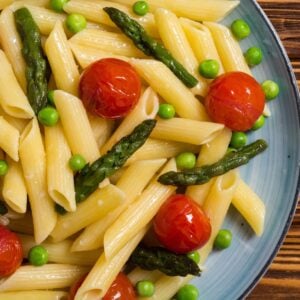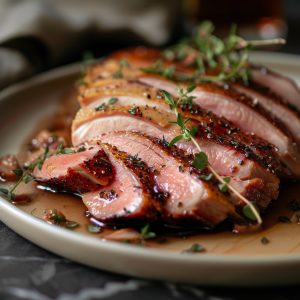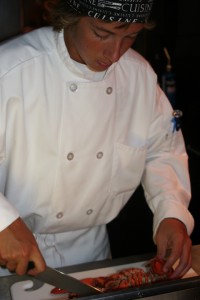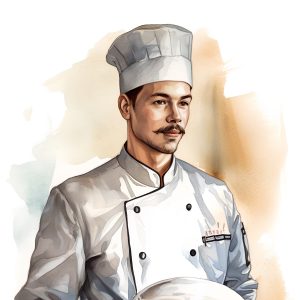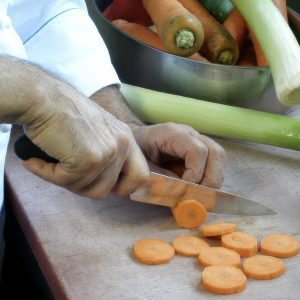What Are the Differences between AOS, AAS, and AA
When you’re choosing a culinary school, one of the things you want to be sure and look out for is the type of degree or diploma awarded upon graduation. Many culinary schools don’t offer traditional degrees at all, instead opting for certificates of completion or diplomas.
These types of awards can be useful in the culinary setting but are rarely recognized in the real working world. (This doesn’t make them less valuable—it just means you should be aware of the differences.)
Some schools offer degree programs, which you can usually determine by the initials AOS, AAS, or AA. Respectively, these designations stand for: Associate of Occupational Studies, Associate of Applied Science, and Associate of Arts. Although these take the same amount of time to complete (usually about two years), they mean very different things.
AOS Degree
An Associate of Occupational Studies (AOS) in Culinary Arts is a comprehensive program designed to equip aspiring chefs with the skills and knowledge needed to excel in the dynamic world of food preparation and culinary management. This degree blends hands-on training with theoretical understanding, providing students with a well-rounded education in the culinary arts.
Throughout the program, students delve into various aspects of culinary techniques, including knife skills, food safety and sanitation, cooking methods, flavor profiles, and menu planning. They also learn about kitchen management, cost control, and the business side of the culinary industry, preparing them for potential leadership roles in restaurants, hotels, catering companies, or even entrepreneurship ventures.
One key component of an AOS in Culinary Arts is the practical experience gained through internships or externships. These allow students to work in real-world kitchen environments under the guidance of experienced chefs. This hands-on training reinforces classroom learning and provides valuable networking opportunities within the culinary industry.
Upon completion of the degree, graduates are equipped with the skills, confidence, and industry connections needed to pursue diverse career paths in the culinary field. Whether they aspire to become executive chefs, pastry chefs, sous chefs, food stylists, or restaurant managers, an AOS in Culinary Arts provides a solid foundation for success in this exciting and ever-evolving industry.
AAS Degree
An Associate of Applied Science (AAS) in Culinary Arts is a practical and focused program designed to provide students with the essential skills and knowledge needed for a career in the culinary industry. This degree emphasizes hands-on training and real-world experience, preparing students for immediate entry into the workforce upon graduation.
The curriculum of an AAS in Culinary Arts typically covers a wide range of topics, including culinary techniques, food safety and sanitation, kitchen management, menu development, and hospitality operations. Students learn in state-of-the-art kitchen facilities, gaining proficiency in cooking methods, ingredient preparation, and presentation techniques under the guidance of experienced chefs and instructors.
One of the distinctive features of an AAS in Culinary Arts is its emphasis on practical experience through internships, externships, or cooperative education opportunities. These experiences allow students to apply their skills in professional kitchen settings, gaining valuable insights into the day-to-day operations of restaurants, hotels, catering companies, and other food service establishments.
Upon completing the program, graduates are well-prepared to pursue entry-level positions in the culinary industry, such as line cooks, prep cooks, banquet chefs, or pastry assistants. The practical skills and industry knowledge acquired during their studies make them valuable assets to employers seeking competent and motivated culinary professionals.
AA Degree
An Associate of Arts (AA) in Culinary Arts is a foundational program that provides students with a comprehensive understanding of the culinary field while also emphasizing academic coursework in addition to hands-on training. This degree combines practical culinary skills with theoretical knowledge, offering a well-rounded education suitable for those interested in pursuing careers in various aspects of the culinary industry.
The curriculum of an AA in Culinary Arts typically includes courses in culinary techniques, food preparation, nutrition, food safety, menu planning, and kitchen management. Students learn fundamental cooking skills, such as knife techniques, cooking methods, and flavor profiles, while also gaining insight into the cultural, historical, and scientific aspects of food and cuisine.
In addition to culinary coursework, students pursuing an AA in Culinary Arts often take general education courses in subjects such as English, mathematics, social sciences, and humanities. These courses help develop critical thinking, communication, and problem-solving skills, which are valuable assets in any career, including the culinary field.
Upon completing the program, graduates of an AA in Culinary Arts are prepared to pursue entry-level positions in restaurants, hotels, catering companies, or other food service establishments. They may work as line cooks, prep cooks, or kitchen assistants, with the option to further their education or gain additional experience to advance their careers in the culinary industry.
Your success as a chef or cook isn’t 100 percent dependent on which degree program you choose, but it is a good idea to know what you’re getting into before you put in all the time and effort associated with getting a degree.
Is A Culinary Career Right For Me?


